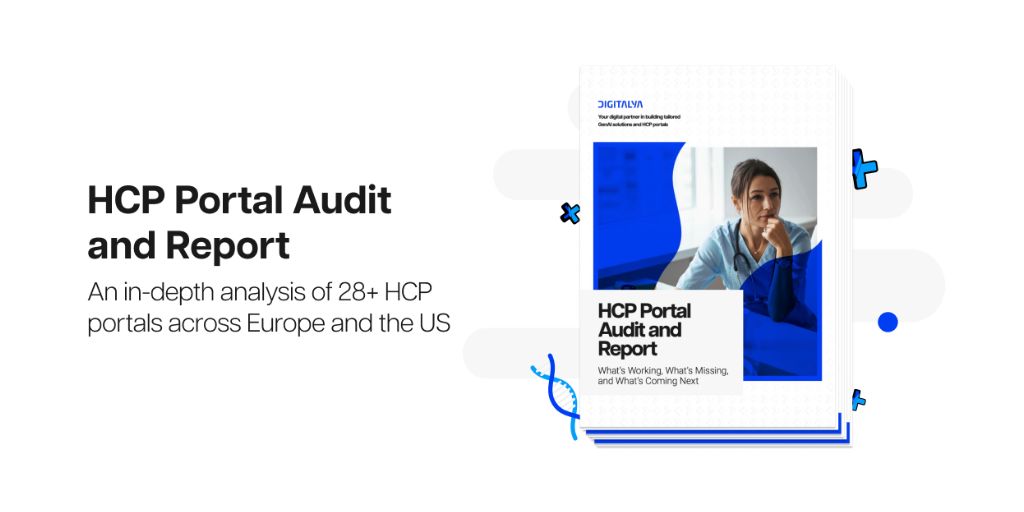
- 80% of HCPs want bookmarking features, while only 3% of the analyzed portals offer them.
- 85% of HCPs want access to learning features, while only 7% of portals offer such opportunities.
- 72% of HCPs are interested in having podcasts on portals, while only 23% offer
- No portals offer community tools like discussion forums, online communities, or peer-to-peer communication spaces.
There are significant gaps between what HCPs want and what portals offer. For example, 85% of HCPs want better access to non-accredited learning content, and 72% are interested in podcasts, but these are not widely available. Also, 70% of HCPs are interested in live chat functionalities, but only 7% of portals offer chatbots.
This is according to Digitalya’s latest analysis, “HCP Portal Audit and Report — What’s Working,What’s Missing, and What’s Coming Next. “The report, based on 28 HCP Portals from large and mid-sized pharmaceutical companies, primarily in Germany, the UK, and the US, reveals the gaps between what HCP portals offer and what HCPs need.
While many HCP portals provide a solid foundation, design and user experience can be significantly improved, and navigation remains a critical weakness. Many portals lack advanced features like filtering (70%) or breadcrumbs (85%) that make content easy to find.
To make these portals more valuable to HCPs, several content gaps should be addressed. Content is not cross-promoted well, is not constantly updated, and lacks learning opportunities. This analysis also reveals a significant opportunity to enhance personalization strategies, move beyond basic filtering, and embrace data-driven approaches to meet the individual needs of each HCP.
The absence of community tools and feedback mechanisms in HCP portals is a significant missed opportunity to engage HCPs and foster a collaborative environment. HCPs would like to have community features incorporated into portals, as well as interactive forums and tools to facilitate knowledge sharing.
Alex Jijie, CEO at Digitalya, said: “This analysis highlights clear inconsistencies between what healthcare professionals need and what current portals offer. I believe that bridging these gaps
is not just about improving functionality — it’s about empowering HCPs with tools that help them deliver better patient outcomes.”
The analysis suggests that AI is a key component of the path forward for HCP portals. It offers solutions to current limitations and enhances their overall effectiveness. While not the only element for improvement, AI is proving itself to be a powerful tool that can address personalization, engagement, and efficiency issues through features like AI-powered chatbots and search boxes, AI for content adaptation (e.g., creating text summaries, transforming video to text, etc.), and even AI feedback and sentiment analysis to better understand HCP needs
Alex Jijie continued: “AI presents an extraordinary opportunity to redefine how HCP portals operate. By leveraging hyper-personalization, intelligent tools, and engaging user experiences, we can transform these platforms into indispensable resources that align with the dynamic needs of healthcare professionals and the patients they serve.”
Digitalya’s HCP audit suggests that HCP portals have the potential to be much more than information repositories. By leveraging data-driven personalization, interactive features, and community tools, they can evolve into intelligent partners in healthcare delivery.












